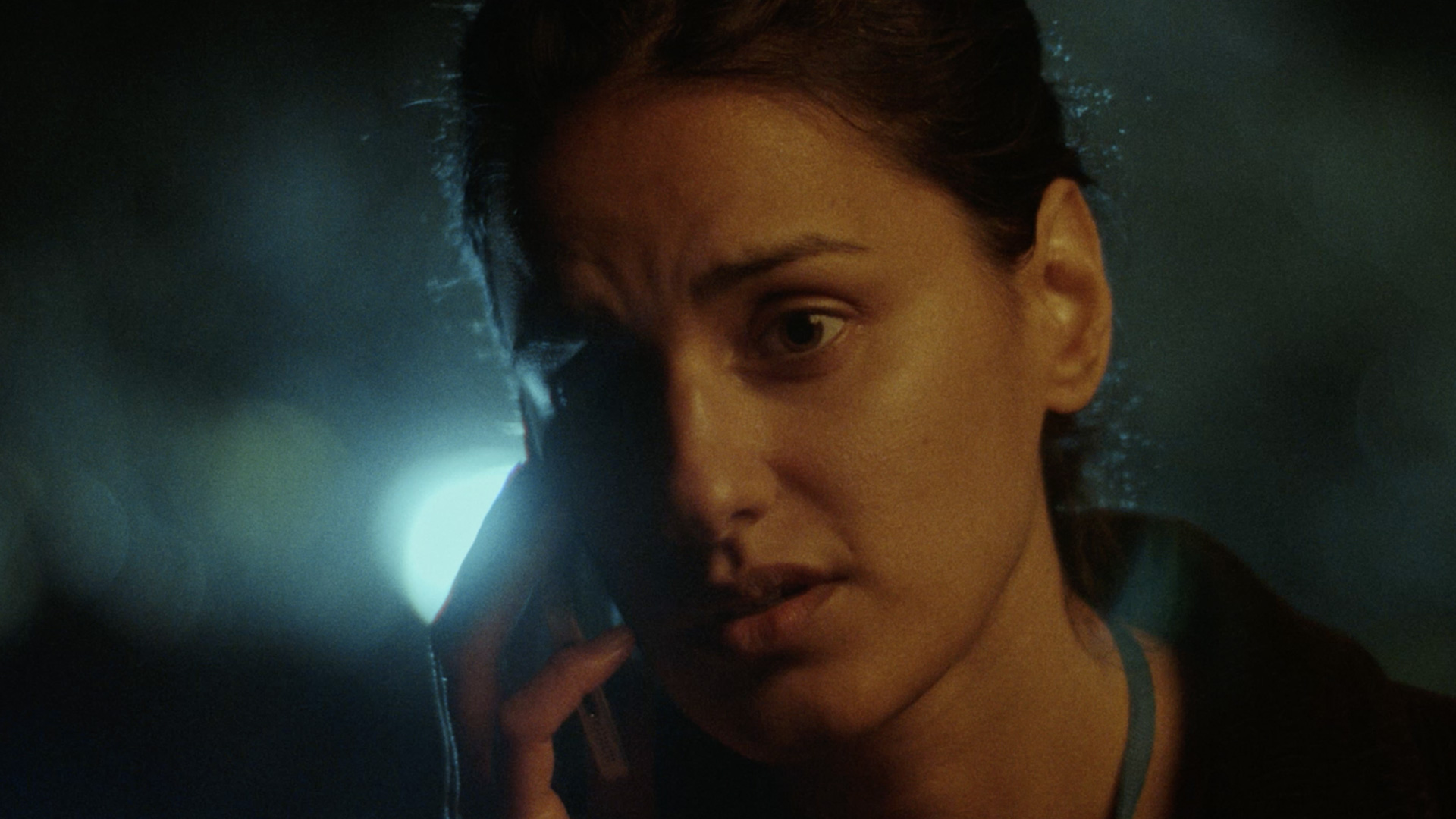As we continue to reckon with the pandemic, it’s easy to lose yourself in statistics. Deaths become figures. Hospital capacity becomes a trend…new cases a slope on a line. From the outset, even the collective rallying cry to bring us all together for the common good felt scientific and mechanical: “flatten the curve!”, they told us, like we were all simultaneously cramming for some calculus exam. To be more blunt, as Stalin’s infamous quote reminds us: “a single death is a tragedy, a million deaths are a statistic.”
I suppose that’s why Azeem Bhati’s Junior Messenger just hits as deeply as it does. Don’t get me wrong: this is a very simple film…simple in concept and execution, restrained and sparse in tone and aesthetic (the one-sided phone call format has been done quite a bit in shorts). But, it’s in that restraint, that we are given a very particular look at a single doctor who is forced to confront the weight of the pandemic as it affects people on an individual level. There are no numbers or charts to hide behind here. This is just raw human connection and the result is quite emotionally devastating.
Much has been written and discussed about the heroic efforts of health care and essential workers since March of 2020 (and for good reason), but it’s easy to shield ourselves with performative public applause breaks and glittering generalities instead of actually facing the terrifying (while also banal) day to day routine of going to work during a literal global pandemic. For some the pandemic “ended” months ago, but so many are still in the trenches. The war continues to go on. After each phone call, they must take a deep breath and move on to the next…

Set at night, Junior Messenger follows a young doctor (Hussina Raja) as she steps outside to make a phonecall
Making a film about the pandemic is obviously a difficult task. It’s been on all our minds for nearly two years, so there is a risk of making something that feels too obvious or unnecessary. As director Bhati relates, “I’m not interested in telling didactic stories. But the idea of two people who have never met (and most likely never will), but will share an intimate conversation and for the few minutes they speak, will form a connection, I thought was powerful.”
As a two-hander short where we only physically see one of the performers, the film is, obviously, leaning pretty heavily on its central actor. Hussina Raja does wonders here, coming across as weary, yet compassionate. And, I found the rhythm of the dialogue between both central characters—starting confrontational, and then, moving to a place of understanding and even kinship—to be subtly moving. It seems cliché to type out, but there is a quiet beauty in two human beings finding common ground and respect, especially as the surrounding world seems so bleak.
This is complemented by Bhati’s natural filmmaking aesthetic. The film is purposely stripped down (no musical score, no showy sequences) and it’s stronger because of it. There can be a propensity to “overshoot” simple concepts and Bhati clearly has the confidence in the material to let it play out.
Bhati is currently working on another short film project that is bigger in length and scope. I’m excited to see him continue to flex his filmmaking skills.

 Ivan Kander
Ivan Kander